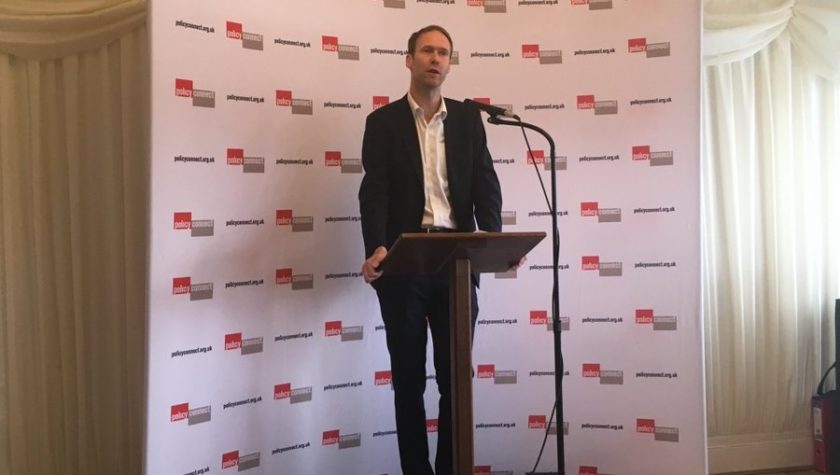Our Chief Executive, Phil Graham, leaves the Commission in January 2020 after four years in the role. Phil led the establishment of the Commission and the landmark publication of the UK’s first National Infrastructure Assessment in 2018. Here, he sets out what his typical working day involves.
07.30
Three days a week my day begins with a small boy’s breakfast (for my son, not me!) and the school run. Since the Commission was first set up we have sought to enable all staff to work flexibly around caring and other commitments, and I’ve been keen to model this from the top of the organisation.
09.30
On the other two days, if I’m not travelling to other parts of the UK, I tend to arrive in the office around now, or start the day with a breakfast meeting or roundtable. A recent example was an event held at WSP alongside Lord Deben, Chairman of the independent Committee on Climate Change (CCC). This private roundtable was an opportunity to discuss the challenges of delivering decarbonisation, building on our work with the CCC on the economic infrastructure needed to accelerate progress towards net zero.
We’re also seeing growing international recognition for the Commission’s work, so a morning slot may be taken up with welcoming a visiting delegation. In recent weeks I’ve spoken to groups from the China Development Bank; from Brazil’s largest sanitation company; and delegates at an Australian British Chamber of Commerce Infrastructure Catalyst event.
11.00
I then usually have catch-ups with members of the management team, or with some of our key stakeholders. The Commission has a wide network of contacts across government, business and the not-for-profit sector, so a typical morning might involve meetings with senior civil servants or industry leaders. In the last few weeks, I’ve sat down with directors at the Department for Transport, the head of the Institution of Civil Engineers and National Grid’s UK chief executive. Many of these discussions are about building support for our recommendations and helping construct a robust evidence base for future studies.
13.00
While lunch is inevitably sometimes a sandwich at my desk, whenever possible I try to sample something from one of the excellent nearby food markets or cafés – one of the benefits of being based between Holborn and Farringdon is the array of options, such as Leather Lane’s market, close by. On other occasions I’ll attend one of our ‘brown bag’ information-sharing sessions, or talks by external speakers on topics related to the work of the Commission. Recent examples include a thought-provoking presentation by Dr Nick Draper from UCL on the legacy of slavery on UK infrastructure, and a fascinating talk by Bobby Duffy, author of ‘The Perils of Perception’, on our false assumptions about social realities.
14.00
Most afternoons involve committee meetings, such as our Policy Board (at which we discuss progress across our policy portfolio in order to share learning and spot connections) or our Oversight Board (which oversees our organisational management and could be looking at, for example, our workforce strategy or next year’s budget). I also have regular catch ups with our Chair, Sir John Armitt, particularly around the latest developments in the public policy environment. If John is not in the office, we might speak on the phone and swap reflections on the day’s developments.
16.00
Inevitably, reviewing committee papers forms part of the role. A typical late afternoon might involve reviewing a paper being prepared for the next Commission meeting, such as options for the next steps in our work on transport infrastructure development in English cities. Part of my role is to make sure that the team’s work aligns fully with the Commissioners’ interests and agenda, and that our advice is evidence-based and forward-thinking.
16.30
The end of the day inevitably involves catching up on emails and phone calls. Preparations for the following day might also include reading over speaking notes for an event and anticipating topical questions.
My commute (a half hour bike ride back to Hackney) provides an opportunity to reflect on some of the most visible elements of UK infrastructure, and how – over the long term – our work could be vital to improving the everyday lives of every UK citizen. I try and leave the office by 6.30, in plenty of time to be home for my son’s bedtime.
Would you be interested in succeeding Phil in this important and varied leadership role? Click here for more details and to apply online. The deadline is Thursday 5 December.




